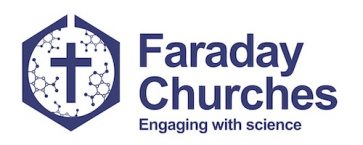Why are you called ‘The Faraday Institute’?
The Faraday Institute was named after the outstanding scientist Michael Faraday, who invented the electric motor and was Professor of Chemistry at the Royal Institution. He was famous for his public lectures, and saw no conflict between his research and Christian faith. Our aim is to continue in his footsteps, demonstrating that Christians can enjoy science.
How is your Christian Ethos worked out?
The main focus of our research work is on the relationship between science and the Christian faith, and we emphasise the education of the Christian community in issues of science and faith.
A key aim of the Faraday Institute is to help our audiences engage with and understand mainstream contemporary science and its relationship to Christianity, sharing the message that you don’t have to choose between science and Christian faith. We focus on the basic truths that Christians believe, aiming to build unity in the Church. We believe the Bible is God’s word, and seek to interpret it to the very best of our ability. We teach the current scientific understanding, enabling people to get to grips with it whether they have a scientific background or not. We encourage thoughtful engagement with the implications of both the Bible and science for our lives. In this way we hope to enable a healthy conversation in the Church where people can listen to each other’s views in a loving and respectful way.
All the staff and speakers involved in Church-based projects accept the historical creeds of the Christian Church (i.e. the Nicene and Apostles creed), catering for all Christian denominations. We accept the Bible as the word of God, and the Gospel as the focus of our lives, beliefs and worship. We are aware of and respect denominational differences, but choose to focus on the central doctrines that we all share in common.
How do you handle controversial or sensitive topics?
Many of the topics covered here raise interesting and important questions for Christians, and there are often a range of views on them within the UK Church as a whole. We affirm the same Gospel, but there are different views on secondary issues such as reproductive medicine or points of Biblical interpretation. We are confident that the Faraday Churches program will provide a welcome stretch for any Christian’s thinking, helping your faith to grow as you discern how to interact with science from a Biblical perspective.
What are the costs/how do you fund you work?
As active members of local churches ourselves, we are well aware that finances are often hard-pressed. We won’t be seeking to recover the full running costs of meetings, training and other events every time – especially from individual churches. All we ask for is a reasonable donation, as well as travel costs and accommodation if needed. A church could make a one-off donation, or a regular payment over several years, if you plan to call on our help regularly or want to support our work in general.
What is expected of host organisations or churches?
When we visit you for meetings, training or events, we ask that you take responsibility for advertising, bookings, communication with participants ahead of time, refreshments, and any other practical arrangements that may be needed on the day.
How do you decide who to spend time with?
Every church leader knows that ministry is busy and there’s always far too much to do, and The Faraday Institute is no exception to that rule. We will try to reach out as widely as possible by prioritising inter-church, denominational or interdenominational events, but we also expect to visit a number of individual churches each year.
Can we visit The Faraday Institute?
You are very welcome to visit us and see our offices in the grounds of Westminster College, Cambridge, chat to any staff who may be available on the day, and join the Church Engagement Director for a coffee. You would also be most welcome to come as a delegate to one of our regular Faraday courses held in Cambridge and other cities in the UK (details at www.faraday.cam.ac.uk/courses). Our summer course is held in Cambridge in early July and specialised courses for church leaders are also held each year.
Please contact us if you have any other questions.





